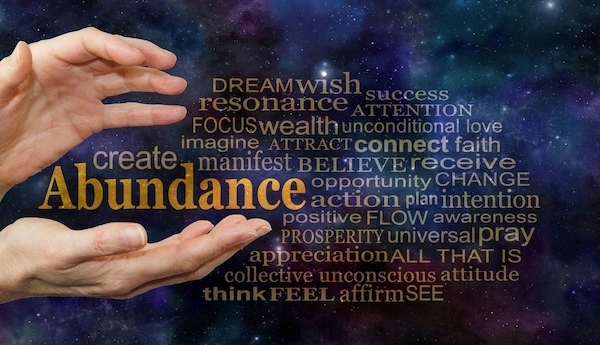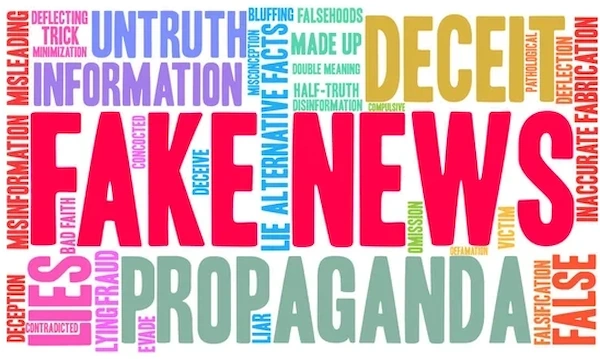
Introduction: The Paradoxical Marriage of Spirituality and Capitalism
In the contemporary spiritual landscape, a curious phenomenon has emerged: the commodification of enlightenment through the doctrine of “abundance.” This concept—suggesting that spiritual advancement naturally manifests as material prosperity—has transformed from fringe belief to mainstream spiritual currency. But what if this marriage between spiritual practice and material acquisition represents not enlightenment but its very antithesis? What if the “abundance mindset,” far from liberating us, simply recasts our capitalist chains in more palatable spiritual language?
The traditional bifurcation between spiritual evolution and material pursuit stems from ancient wisdom across cultures. The Buddha abandoned his palace, Jesus praised the poor in spirit, and Diogenes lived in a barrel—all suggesting that attachment to worldly possessions impedes spiritual clarity. Yet modern spiritual entrepreneurs increasingly position wealth as not merely compatible with spiritual growth but as its natural consequence.
This transformation demands critical examination. Has genuine spiritual inquiry been hijacked by marketplace logic, or does abundance philosophy represent an authentic integration of spiritual and material realms? Perhaps more troublingly, does the pursuit of abundance represent a fundamental misunderstanding of what spiritual growth actually entails?
The Alchemy of Linguistics: How “Wealth” Became “Abundance”
The linguistic evolution from “wealth” to “abundance” and “prosperity” represents a masterful sleight of hand. This semantic shift doesn’t merely rename an old concept—it fundamentally reframes our relationship to materialism. Where “wealth” carries historical associations with exploitation, inequality, and greed, “abundance” evokes images of natural bounty, divine providence, and limitless possibility.
This linguistic transformation serves a dual purpose: it absolves the seeker of the moral ambiguity surrounding wealth pursuit while simultaneously sanctifying material acquisition as spiritual achievement. The language of abundance creates a moral framework where wanting more becomes virtuous rather than problematic.
Consider how different religious traditions historically viewed wealth. Buddhism identifies desire as the root of suffering; Christianity warns that “it is easier for a camel to pass through the eye of a needle than for a rich man to enter the kingdom of heaven”; Islam emphasizes zakat (charity) as a fundamental pillar. These traditions didn’t merely suggest moderation—they explicitly cautioned against wealth attachment as spiritually hazardous.
Modern abundance philosophy inverts this wisdom, suggesting that material limitation represents not spiritual opportunity but evidence of spiritual failure. In this inverted paradigm, the holy man is not the ascetic monk but the spiritual entrepreneur with a lucrative book deal and luxury retreat center.
The psychologist Carl Jung might view this as a profound shadow projection—our materialistic culture’s refusal to confront its addiction to consumption by spiritualizing acquisition rather than transcending it. French philosopher Jean Baudrillard would likely identify this as “simulation”—where signs of spiritual advancement (material success) have replaced actual spiritual transformation.
Spiritual Bypassing: The Shadow Side of Positivity
The “abundance mindset” often functions as what psychologist John Welwood termed “spiritual bypassing“—using spiritual practices to avoid facing psychological wounds, unresolved trauma, and uncomfortable emotions. By focusing exclusively on positive thoughts and manifestation techniques, practitioners can avoid confronting deeper issues of self-worth, fear, and existential anxiety.
This bypassing manifests in troubling ways within abundance philosophy. Consider the implied message that poverty or financial struggle results from incorrect thinking rather than structural inequalities, exploitation, or systemic issues. This perspective not only blames victims for their circumstances but absolves the affluent of any ethical responsibility for their privilege.
More insidiously, this framework pathologizes negative emotions like anger, discontent, and critique—precisely the emotions that might motivate social change or resistance to oppressive systems. If one believes that focusing on injustice only creates more injustice (a common abundance teaching), then political engagement becomes not just unnecessary but spiritually counterproductive.
The philosopher Herbert Marcuse warned of “repressive desublimation”—the process by which seemingly liberatory practices actually reinforce existing power structures. The abundance mindset, with its emphasis on individual thought patterns rather than collective action, represents a perfect spiritual expression of neoliberal capitalism, placing responsibility for both success and failure squarely on the individual while ignoring broader societal forces.
Too Simple to Be True: Examples of Fake Spirituality
Examples of fake spiritual teachings about abundance and prosperity usually emphasize simplistic or transactional approaches to spirituality that suggest material wealth can be effortlessly obtained through positive thinking or affirmations.

Here are some notable examples:
The Law of Attraction: Beyond Rhonda Byrne’s “The Secret”, various modern interpretations suggest that simply visualizing or affirming your desires will magically attract wealth and success. This can result in individuals failing to recognize the necessity of proactive measures and introspective work for authentic success in business, while simultaneously neglecting the deeper, spiritual needs they may have.
Manifestation Workshops: Some workshops promote the idea that participants can create their dream lives by merely stating intentions and visualizing outcomes. These sessions often neglect the importance of personal responsibility, hard work, and resilience in the face of challenges.
Abundance Mindset Coaching: Certain coaches offer services centered around fostering an “abundance mindset”, suggesting that any lack of abundance in one’s life is solely due to limiting beliefs. While thoughts play a role in our experiences, this perspective can dismiss systemic factors and the necessity of effort and growth.
Instant Gratification Promises: Some spiritual influencers claim that spiritual practices can yield immediate material rewards, such as wealth, fame, or relationships. This oversimplifies the spiritual journey and can lead followers to feel disillusioned when results don’t manifest as promised.
Cosmic Ordering: This concept posits that one can “order” their desires from the universe, similar to placing an order at a restaurant. Proponents believe that stating what you want with certainty will result in its manifestation, completely bypassing the deeper inner work required.
Celebrity Spirituality: Certain celebrity figures promote a lifestyle of wealth and glamour as evidence of spiritual success. Their teachings often equate spiritual authenticity with external markers of success, undermining the intrinsic values of compassion and inner peace.
Quick-Fix Meditation Products: Some products or courses market quick meditation techniques or audio tracks that promise to rapidly change your life or bring abundance. This overlooks the dedication and time typical in building a meaningful spiritual practice.
Overemphasis on Material Success: Some teachings glamorize material wealth as a sign of spiritual advancement, leading followers to equate financial success with higher consciousness or enlightenment while neglecting the importance of ethical living and altruism.
These examples highlight a trend where spiritual teachings can become superficial, focusing on tangible gain rather than the transformative inner work that genuine spirituality demands. It is essential to approach spiritual growth holistically, recognizing the interplay between mindset, actions, and values.
The Prosperity Paradox: When Having More Leads to Less
Psychologists have long documented the “hedonic treadmill”—the human tendency to quickly return to baseline happiness despite positive or negative changes in circumstance. The pursuit of abundance often accelerates this treadmill, creating a spiritual paradox: the more one acquires, the less satisfying each acquisition becomes.
This paradox reveals itself most clearly in the lives of those who achieve material “abundance” yet find themselves spiritually impoverished. The corporate executive with multiple homes but no time for family, the celebrity with millions of followers but profound loneliness, the wealthy entrepreneur plagued by existential emptiness—these modern archetypes demonstrate that material abundance often correlates inversely with existential fulfillment.
A less discussed but equally troubling dimension of the abundance paradox lies in its ecological implications. In a finite planetary system, unlimited individual abundance becomes mathematically impossible. When abundance philosophy encourages everyone to manifest more resources, it collides with ecological reality. The earth simply cannot sustain seven billion people living at Western consumption levels.
This collision between spiritual materialism and ecological limits represents perhaps the most profound contradiction within abundance philosophy. True spiritual traditions have typically emphasized harmony with natural systems rather than unlimited extraction from them. The insatiable desire for more—whether framed as “abundance” or “greed”—fundamentally contradicts the principle of interconnection that genuine spirituality recognizes.
The Quantification of Consciousness: Measuring the Immeasurable
Another troubling aspect of abundance philosophy lies in its tendency to quantify spiritual advancement through material metrics. This approach mirrors societal obsessions with measurement, assessment, and quantifiable outcomes—a paradigm that philosopher Martin Heidegger warned reduces being itself to a calculable resource.
When spiritual progress becomes measurable through financial success, Instagram followers, or retreat attendance, spirituality transforms from an ineffable inner journey to an external performance. This shift creates a spiritual marketplace where practitioners inevitably compare themselves to others, fostering precisely the competitive, scarcity-based mindset that abundance philosophy purports to transcend.
Consider how different this approach is from traditional contemplative practices, which emphasized subjective states of consciousness rather than objective outcomes. A Zen monk doesn’t measure enlightenment by temple size; a Sufi doesn’t quantify divine union through donation amounts. Yet contemporary abundance teachings regularly point to material success as evidence of spiritual advancement.
This quantification creates a disturbing connection between spiritual practice and capitalist productivity logic. When meditation becomes valued primarily for increasing work efficiency, when yoga is practiced mainly for enhancing physical appearance, when ayahuasca ceremonies are attended primarily for creative breakthroughs—spirituality becomes instrumentalized, reduced from an end-in-itself to a means for worldly achievement.
The False Prophets: Commercialized Spirituality’s Hidden Costs
The spiritual marketplace teems with abundance teachers promising simple formulas for manifestation. Their business model reveals a profound irony: their personal abundance derives primarily from selling abundance philosophy to others, not from applying these principles in separate businesses or investments.
This creates a closed system where the only proven “manifestation” is the teacher’s ability to profit from teaching manifestation. Students rarely question this circular logic, instead attributing their own failures to implement the teachings to personal spiritual inadequacy rather than flaws in the philosophy itself.
The commercialization of spirituality presents other hidden costs. When spiritual teachings become products, they inevitably undergo marketization—simplification, exaggeration, and selective emphasis on appealing aspects while downplaying challenges. The result resembles spiritual fast food: briefly satisfying but lacking nutritional depth.
Moreover, the teacher-student relationship transforms from sacred trust to consumer transaction. When students become customers, teachers face market pressures to please rather than challenge, to comfort rather than confront. This dynamic corrupts authentic spiritual transmission, which historically required teachers to sometimes disappoint, frustrate, or even anger students as part of their awakening process.
Perhaps most disturbingly, commercialized spirituality often appropriates practices from marginalized cultures while disconnecting them from their ethical and philosophical foundations. Abundance teachings frequently incorporate decontextualized concepts from indigenous traditions without acknowledging these cultures’ emphasis on community reciprocity over individual accumulation.
Beyond Duality: Transcending the Material/Spiritual Divide
Despite these critiques, a more nuanced perspective recognizes that the material/spiritual dichotomy itself may represent a false duality. Eastern philosophies like Advaita Vedanta and Tantric Buddhism have long recognized that enlightenment doesn’t require rejecting the material world but rather transcending our attachment to it.
The problem with abundance philosophy isn’t its inclusion of material well-being in spiritual life but its reduction of spirituality to material acquisition. A more integrated approach would neither demonize nor idolize prosperity but recognize it as neither inherently spiritual nor unspiritual.
Several contemporary teachers offer more balanced perspectives. Vietnamese Zen master Thich Nhat Hanh advocated “mindful consumption” rather than asceticism or indulgence. Integral philosopher Ken Wilber suggests that spirituality transcends but includes material concerns rather than rejecting them. Eco-philosopher Joanna Macy promotes “sacred economics” that honors material needs within ecological limits.
These approaches avoid both the materialism of pure abundance philosophy and the dualism of traditional religious asceticism. They recognize that genuine spiritual advancement manifests not as unlimited personal acquisition but as an expanded sense of identity that includes the well-being of all beings.
The Revolutionary Act: Contentment in a Consumer Society
Perhaps the most radical spiritual stance in contemporary society isn’t pursuing abundance but cultivating contentment. In a economic system dependent on creating perpetual desire, choosing satisfaction with enough represents not spiritual bypassing but revolutionary resistance.
This perspective inverts abundance philosophy’s fundamental premise. Rather than changing your thoughts to get what you want, true spiritual practice might involve changing your wants to align with what serves all beings. Rather than attracting more resources to yourself, spiritual advancement might mean recognizing the sufficiency of what you already possess.
The 19th-century transcendentalist Henry David Thoreau captured this wisdom when he wrote: “A man is rich in proportion to the number of things he can afford to let alone.” This perspective suggests that abundance manifests not through accumulation but through liberation from unnecessary desire.
Contemporary psychologists have validated this ancient wisdom. Research on “voluntary simplicity” demonstrates that beyond meeting basic needs, additional consumption yields diminishing returns on happiness while creating increasing environmental impact. Studies on mindfulness show that present-moment awareness consistently produces greater life satisfaction than future-oriented striving.
Conclusion: Authentic Abundance as Inner Transformation
Authentic abundance emerges not from manifesting external wealth but from recognizing the inherent richness of existence itself. This shift represents not a rejection of material well-being but a profound reordering of priorities—from having to being, from acquisition to appreciation, from consumption to contribution.
The spiritual journey involves facing uncomfortable truths, including our complicity in systems of exploitation and ecological destruction. Genuine spiritual practice must transcend individual positive thinking to encompass collective responsibility and systemic change. True abundance consciousness recognizes that in an interconnected world, personal prosperity built on others’ deprivation represents not spiritual achievement but spiritual failure.
As philosopher Eckhart Tolle observes: “If you get the inside right, the outside will fall into place.” This wisdom suggests that authentic abundance flows naturally when we align with our deeper nature—not through mental manipulation of external circumstances but through recognition of our fundamental completeness.
The path beyond abundance illusion requires discriminating wisdom—the capacity to distinguish between genuine spiritual teachings and marketable spiritual products. It requires moral courage to question culturally sanctioned materialism, even when dressed in spiritual language. Most fundamentally, it requires willingness to face the discomfort of examining our own attachments and aversions rather than bypassing them through positive thinking.
The ultimate paradox may be that true abundance arises not from getting everything we want but from wanting what we already have. In this profound contentment lies not resignation but liberation—the freedom to participate in life from love rather than lack, from generosity rather than grasping, from the overflowing fullness of being rather
DO YOU HAVE AN ABUNDANCE MINDSET?
Read the statements below and choose the ones that reflect your way of thinking.
Count the number of boxes selected and examine the resulting profile.
0: You don’t believe in fake abundance!
1-2: Beware of the trap of fake abundance!
3-4: You are walking into the trap of fake abundance!
5-6: You fall victim to the illusion of false abundance!
Further details about this mini-test





